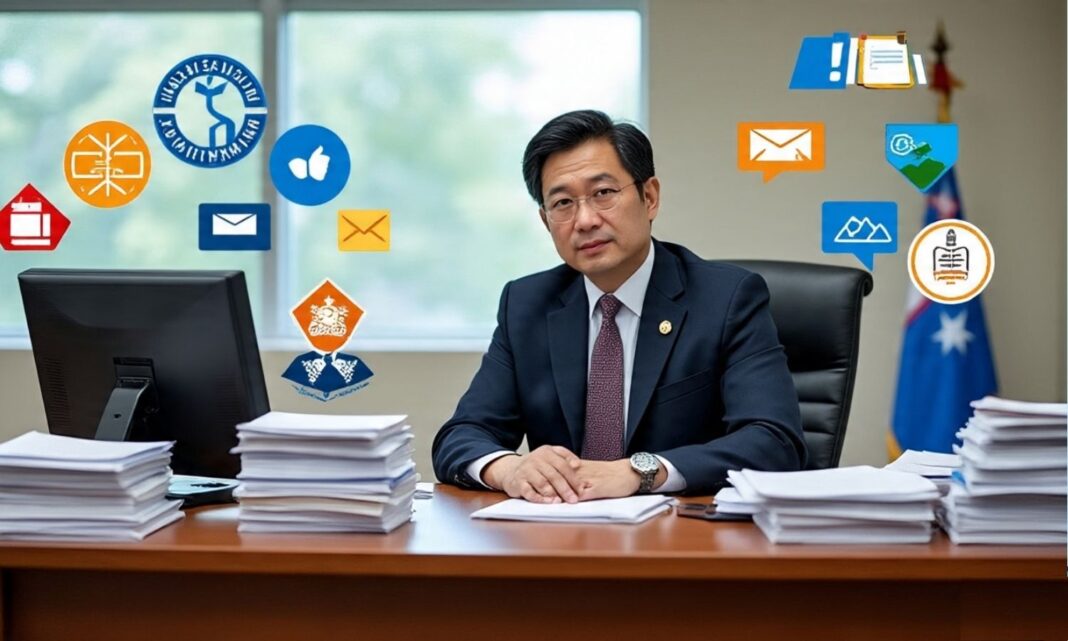What Is an Ombudsmänner?
An Ombudsmann (Ombudsmänner) is a neutral, independent officer who is appointed to investigate grievances and disputes in organizations, public bodies, and private organizations. The office originated in Sweden when the parliamentary ombudsman was created in the early 19th century. The function has since been employed globally to offer openness, justice, and accountability across numerous realms.
Types of Ombudsmänner and Their Domains
Public Sector Ombudsmänner
These ombudsmänner work in government and legislative organizations. They normally handle complaints against government departments, public authorities, and police. Normal public ombudsman organizations are:
Parliamentary Ombudsmänner
Municipal Ombudsmänner
Police Complaints Ombudsmänner
Corporate Ombudsmänner
Corporate ombuds männer handle worker grievances, ethical indiscretions, and internal strife at the private sector level. These individuals play a key role in maintaining corporate levels of governance and ethical conduct.
Financial Ombudsmänner
Banking, insurance, and financial services are the spheres for which these ombuds männer are trained. They resolve conflicts between customers and money organizations. They usually exist as alternative dispute resolution (ADR) mechanisms, providing unbiased judgment without involving courts of law.
Academic and Healthcare Ombuds männer
In schools and hospitals, ombud smänner assist students, employees, and patients in solving red tape, misconduct, discrimination, and moral issues. They ensure equality and peace of mind in school and medical settings.
Why Ombudsmänner Are Essential in Modern Times
Ensuring Institutional Accountability
Ombud smänner ensure institutions are accountable by studying grievances, detecting malpractices, and suggesting redressal measures. They are free to pass judgments, with absolutely no possibility of conflict of interest.
Fostering Transparency and Integrity
Through independent operation and public disclosure of their reports, ombuds männer foster openness, dissuade corrupt practice, and stimulate honest response in the private and public spheres.
Alternative Dispute Resolution (ADR)
Litigation is costly, time-consuming, and sometimes unavailable. Ombuds männer provide a low-cost, informal, and confidential alternative, allowing parties to settle disputes successfully.
Building Public Trust
Institutions that have ombuds männer are viewed as more legitimate and user-oriented. A bank, university, or government institution that has an ombudsman signals a message of regard for equality and safeguarding of rights.
Key Principles That Make an Effective Ombudsmann
Independence
A good ombudsmann should be independent of outside influence, both in organization and operation. This ensures the integrity of inquiry and removes bias in judgments.
Impartiality
They should be impartial, neutral. Impartiality is the basis of credibility and the solution to conflict resolution in a way that is just.
Confidentiality
Confidentiality is necessary in gaining frank discussion and safeguarding confidential information. Ombuds männer should deal with all grievances confidentially and sensitively.
Accessibility
There has to be an office for an ombudsmann that everyone of the stakeholders, irrespective of his/her economic or social standing, can approach. Accessibility brings inclusiveness and democratic engagement.
How Ombud smänner Manage Complaints: Step by Step Overview
Submission of Complaint
Someone submits a formal complaint in written form or electronic medium, describing his problem in detail.
First Impression
The ombudsmann determines if the complaint is within his/her domain.
Gathering Information
By way of interviews, documentary examination, and engagement with stakeholders, the ombudsmann collects an aggregate overview of the case.
Mediation or Investigation
Based on the seriousness of the complaint, the ombudsmann either mediates between parties or carries out a formal investigation.
Recommendations and Reporting
Having concluded or settled the case, the ombudsmann makes findings and recommendations. The reports are predominantly published to promote compliance and prevent future abuse.
Follow-Up
In the majority of systems, the ombudsmann afterwards makes sure that the suggested modifications are indeed implemented.
Applications of Ombudsmänner in Real Life
European Ombudsman
The European Ombudsman investigates complaints of maladministration by the institutions and bodies of the European Union. This encompasses lack of transparency, discriminatory practices, and an abuse of power. It acts as a useful watchdog over EU institutions.
UK Financial Ombudsman Service
It resolves consumer and UK financial institution disputes. It deals with thousands of complaints every year, making binding decisions that secure consumers’ confidence in the financial system.
UN Ombudsman Office
Within the United Nations, the Ombudsman Office helps staff resolve workplace disputes and in developing cultures of respect and effective work. It helps create a healthier organizational culture across all UN organizations.
The Future of Ombuds männer: Digital Transformation and AI Integration
As companies go digital, ombudsman roles do as well. Chatbots, automated case management, and data analysis are employed to automate complaint resolution, detect patterns, and rank systemic concerns.
Remote access, via videoconferencing and online filing portals, is also making ombuds männer more accessible than ever.
Ombudsmänner vs. Internal HR or Legal Departments
Whereas HR departments and law firms address internal needs, ombuds männer are building an actually independent channel of complaint handling. Such differentiation is significant in:
Whistleblowing disputes
Cases of discrimination sensitivity Conflict of interest situations
Due to their external location or independent role, ombuds männer are less likely to be afflicted by internal bias and more capable of resolving high-risk cases objectively.
Challenges Confronting Ombudsmänner Today
Although they are useful, ombudsmänner are confronted with a number of challenges:
No powers of enforcement in certain jurisdictions
Insufficient funds and thin personnel
Resistance within institutions to proposals
Scant sensitization of the public to the existence or role of ombud smänner
The above challenges spell the call for legal reforms, institutional take-up, and public sensitization towards enhancing the work of such crucial watchdogs.
Conclusion:
Having an ombudsmänner is a tremendous asset for any institution that wants to be responsible, fair, and ethically governed. In public administration, in the university system, in medical care, in finance, they see that the voices of people are heard, their rights are defended, and systemic problems are resolved.
